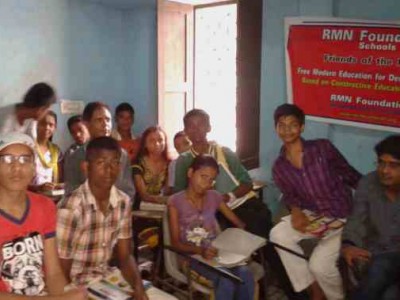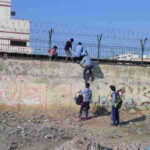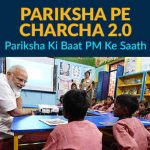
How to Send Every Syrian Child Back to School

Ghinwa, 7, and her brother Alaa, 11, at Al-Khalidia Al-Khamisa informal settlement in Homs, Syria. January 2016
The future of a generation of Syrian children and youth is in jeopardy unless donors meeting in London this week prioritise the funding needed to get them back to school, say aid agencies leading the response to the brutal conflict ravaging the country.
Nearly five years into the crisis, around 4 million Syrian and host community children and youth aged 5-17 years are in need of education assistance.
These include 2.1 million out of school Syrian children inside Syria and 0.7 million out-of-school Syrian children in Turkey, Lebanon, Jordan, Iraq and Egypt.
[ UNICEF Launches $2.8 Billion Appeal for Children ]
Last year, the combined efforts of governments and international partners helped more than one million children and youth inside Syria benefit from formal or non-formal learning opportunities.
But with no political solution in sight to one of the most brutal conflicts the world has seen in decades, the number of children missing out on an education continues to climb.
The region’s education crisis will be in the spotlight at a major conference in London on Thursday, co-hosted by the UK, Germany, Kuwait, Norway, and the United Nations.
Leaders from more than 30 countries are expected to attend the meeting, with the aim of raising new funding to meet the immediate and longer-term needs of those affected by the crisis.
[ Also Read: How India Abuses Children’s Right to Education ]
Ahead of the meeting, aid groups and UN agencies making up the “No Lost Generation Initiative” are calling for US$1.4 billion to help around four million children and youth inside Syria and in neighbouring countries access formal and non-formal education opportunities.
“The scale of the crisis for children is growing all the time, which is why there are now such fears that Syria is losing a whole generation of its youth”, said Dr Peter Salama, regional director for the Middle East and North Africa for UNICEF, the agency which coordinates the Initiative.
Governments at the London meeting will also be urged to put more pressure on parties to the Syria conflict– and those who support them — to end attacks on schools and other places of learning, in accordance with International Humanitarian Law.
In Syria, the killing, abduction and arrest of students and teachers has become commonplace. So have arbitrary attacks on schools. About one in four schools cannot be used because they have been damaged, destroyed or are being used as shelters for the internally displaced or for military purposes.
Photo courtesy: UNICEF










